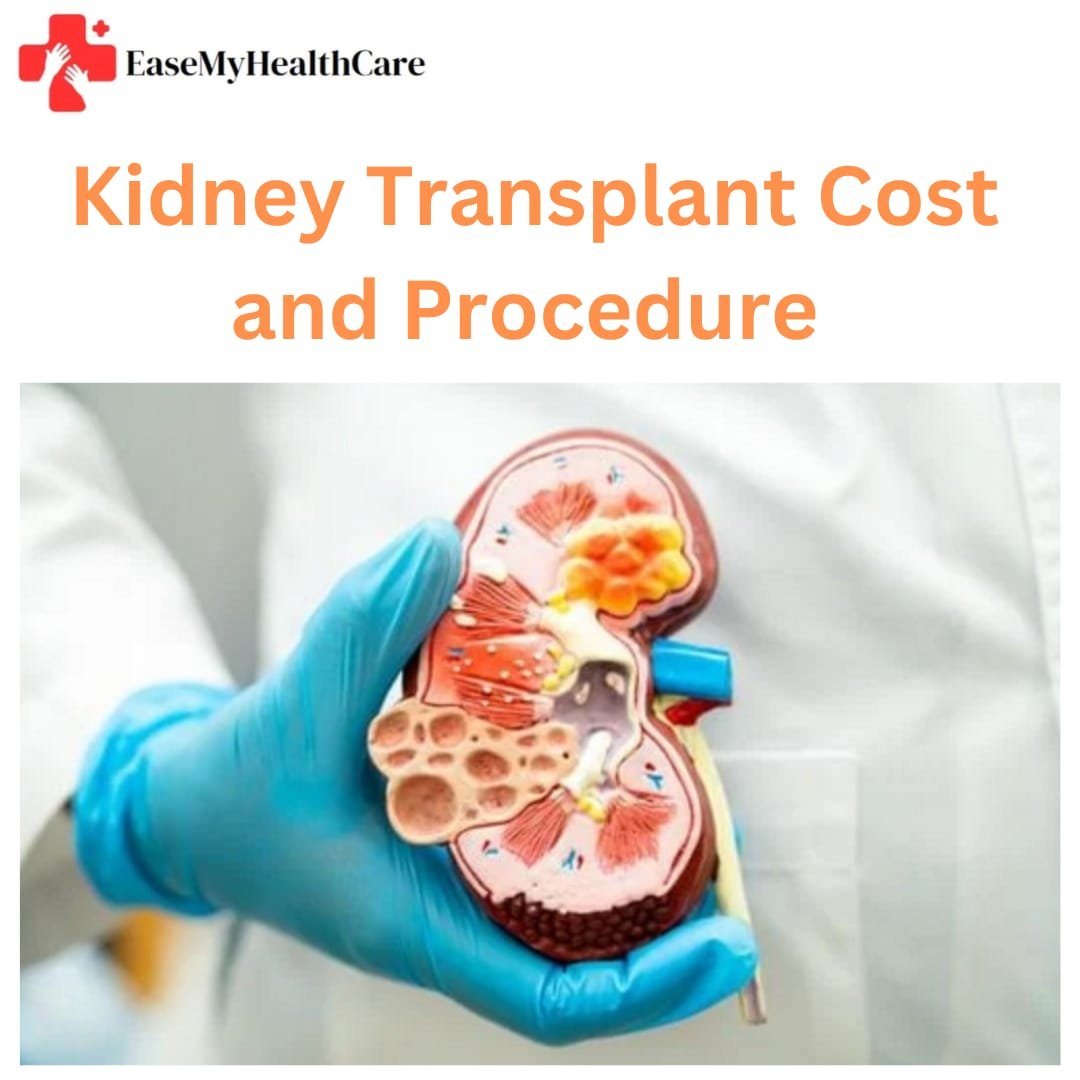Kidney transplant is a life-saving procedure for individuals suffering from end-stage kidney disease (ESKD) or irreversible kidney failure. With the rising prevalence of kidney-related illnesses, understanding the cost and factors associated with kidney transplantation in both government and private hospitals is crucial. This blog explores every detail about kidney transplant costs in India, breaking down the expenses in government and private hospitals, eligibility criteria, and related queries.
What Is the Cost of a Kidney Transplant in India?
India is a preferred destination for kidney transplants due to its affordability and high-quality medical infrastructure. The cost of a kidney transplant depends on whether it is performed in a government or private hospital.
- In Government Hospitals:
The cost ranges from ₹2,00,000 to ₹5,00,000 ($2,400–$6,000). Subsidized rates and financial aid schemes are often available for eligible patients. - In Private Hospitals:
The cost is typically higher, ranging from ₹7,00,000 to ₹15,00,000 ($8,500–$18,000). Private hospitals offer quicker scheduling, luxury amenities, and advanced facilities.
Government vs. Private Hospitals: A Cost Comparison
| Feature | Government Hospitals | Private Hospitals |
| Cost | Affordable due to subsidies | Higher but with premium services |
| Waiting Time | Longer due to high patient volume | Shorter, with faster scheduling |
| Infrastructure | Adequate but basic | Advanced facilities and personalized care |
| Success Rate | High, but resources may be limited | Very high due to cutting-edge technology |
What Does the Cost Include?
The total cost of a kidney transplant generally includes:
- Pre-transplant tests: Blood tests, tissue matching, and imaging.
- Surgery fees: Surgeon’s fee and operation room charges.
- Donor evaluation: Medical tests for the donor.
- Post-operative care: ICU charges, medications, and follow-up visits.
- Immunosuppressive drugs: Essential lifelong medication to prevent organ rejection.
Top Government Hospitals for Kidney Transplants in India
- AIIMS, Delhi
- Cost: Starts at ₹2,00,000 ($2,400).
- Known for its highly skilled specialists and affordable treatment options.
- PGIMER, Chandigarh
- Cost: ₹2,50,000–₹3,00,000 ($3,000–$3,600).
- Renowned for its advanced research and patient care.
- KEM Hospital, Mumbai
- Cost: ₹3,00,000 ($3,600).
- Offers affordable transplants with excellent success rates.
- CMC, Vellore
- Cost: ₹3,50,000–₹4,00,000 ($4,200–$4,800).
- A pioneer in kidney transplant surgeries in South India.
Top Private Hospitals for Kidney Transplants in India
- Apollo Hospitals, Chennai
- Cost: ₹8,00,000–₹12,00,000 ($9,600–$14,500).
- Offers premium facilities and state-of-the-art technology.
- Fortis Memorial Research Institute, Gurgaon
- Cost: ₹10,00,000–₹15,00,000 ($12,000–$18,000).
- Renowned for highly skilled nephrologists and global standards of care.
- Manipal Hospitals, Bangalore
- Cost: ₹7,50,000–₹10,00,000 ($9,000–$12,000).
- Focuses on personalized care and advanced surgical procedures.
- Max Healthcare, Delhi
- Cost: ₹9,00,000–₹12,00,000 ($10,800–$14,500).
- Offers a holistic approach with high success rates.
- Artemis Hospital, Gurgaon
- Cost: ₹8,00,000–₹13,00,000 ($9,600–$15,600).
- Known for cutting-edge technology and excellent patient outcomes.
Eligibility Criteria for Kidney Transplant
To undergo a kidney transplant, both the patient and donor must meet certain criteria:
For the Recipient:
- Diagnosed with end-stage kidney disease or irreversible kidney failure.
- Medically fit to undergo surgery.
For the Donor:
- Should be above 18 years and in good health.
- Blood type and tissue type must match the recipient.
Common Queries About Kidney Transplant Costs
1. Does Insurance Cover Kidney Transplant Costs?
Yes, many health insurance policies in India cover kidney transplant costs, including surgery, donor evaluation, and post-operative care. However, coverage varies between insurers.
2. What Are the Alternatives to Kidney Transplant?
For patients who cannot undergo a transplant, alternatives include:
- Dialysis: Regular hemodialysis or peritoneal dialysis.
- Lifestyle changes: Managing diet, fluid intake, and medication.
3. What Is the Success Rate of Kidney Transplants in India?
The success rate of kidney transplants in India is around 85–90% for the first year. With proper post-operative care and medication, patients can lead a normal life for many years.
4. Why Is Kidney Transplant Cheaper in Government Hospitals?
Government hospitals are subsidized by the government, making them more affordable for the general population.
Factors That Influence Kidney Transplant Costs
- Hospital choice: Government hospitals are more affordable than private ones.
- Severity of the condition: Advanced cases may require more resources, increasing costs.
- Post-operative medication: Immunosuppressants are a lifelong expense.
- Location: Metropolitan cities usually charge more than smaller cities.
Why Choose India for Kidney Transplants?
India is a global hub for affordable and high-quality kidney transplant surgeries. Here’s why:
- Cost-effective treatment: Affordable prices without compromising quality. Explore EaseMyHealthcare treatments.
- Skilled specialists: Experienced nephrologists and transplant surgeons. Read more about in details..
- Medical tourism: Services tailored for international patients, including visa assistance and accommodation. Contact Now EaseMyHealthcare and transforms your easy healthcare experience by offering personalized guidance every step of the way. Discover the best in affordable medical treatments and surgeries across India, all designed with your comfort and care in mind.
Conclusion
Understanding the cost of a kidney transplant and choosing the right hospital is crucial for a successful procedure. Whether you opt for a government hospital for affordability or a private hospital for premium care, India offers excellent options for kidney transplants.
If you’re considering a kidney transplant, consult with a qualified nephrologist to explore the best options available. With the right guidance and care, a healthier and more fulfilling life is achievable.




